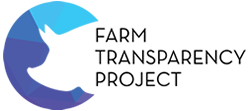News & Media: Tasmanian abattoir thrives amid US-China tariffs tit-for-tat
Tasmanian abattoir thrives amid US-China tariffs tit-for-tat
Chinese authorities last month gave 10 Australian abattoirs approval to access the Asian giant's market, including Tasmanian Quality Meats (TQM).
TQM will now be able to sell mutton and lamb to Chinese consumers for the first time.
The decision came after US President Donald Trump flagged massive tariffs on Chinese imports, with the Chinese authorities responding in kind.
Tasmanian Quality Meats managing director Jake Oliver says China could end up accounting for 40 per cent of its mutton production. Picture supplied
With fewer US goods now set to enter China, Chinese authorities are now looking to other countries to replace potential import losses, including Australia.
Cressy-based TQM already exports lamb and mutton to the Middle East, Japan and the US, but adding a market as valuable as China could be a game-changer, according to managing director Jake Oliver.
"It was on Anzac Day we we got an email letting us know that we were officially accepted to export lamb and mutton into China," Mr Oliver said.
"We got audited a couple of weeks ago, and they were happy with what they saw."
Mr Oliver said that the episode is well behind the company after it made changes, including appointing animal welfare experts.
He said securing China as an export market was "huge" for the company and Tasmania.
"They take a lot of product, and quite often they do pay a premium price for different items.
"They're also really good at taking second-grade cuts, such as bone cuts and those sorts of things, which helps increase revenue and allows us to be able to pay more money to the farmer."
Mr Oliver estimated that China could soon account for most of the company's mutton production.
"I think most of our mutton will end up going to China as they do pay better money, so that would probably be about maybe 40 per cent of what we process."
He said it was good news for TQM workers and the farmers it relies on around the state.
"If we can if we can go out there and pay the farmers more for their sheep, it's going to work out good in the long run for them.
TasFarmers chairman Ian Sauer said confirmation of TQM's approval to export to China meant more volumes of meat being purchased from Tasmanian farmers, and more competition.
"What this means for farmers is, first, more competition which is good, and second, more lamb and mutton processed right here in Tasmania," he said.

Ian Sauer of Tas Farmers says more meat purchases by abattoris is a good thing for farmers. Picture by Rod Thompson
"We said when Trump brought in tariffs, we wouldn't focus on problems but solutions, so this is a real positive outcome."
Rabobank senior animal protein analyst Angus Gidley-Baird said the Chinese decision to approve the 10 Australian abattoirs for export could have been motivated more by seeking to cut prices by introducing more competition in China.

Rabobank senior animal protein analyst Angus Gidley-Baird. Picture supplied
"Increasing the number of plants that can supply into that market, it might just increase the competitive tension for those that are exporting," he said.
"It gives China a greater ability to access a number of different supplies."
He said TQM's expansion into the Chinese market was good for the company, but also for local farmers.
But he cautioned that sheep meat was not a big part of the Chinese diet.
"Pork is their main consumed protein.
"The Chinese market tends to be more of a trader market in the sense that if the price is right, they will buy.
"And if the economy in China is doing really well, then they'll look to meet the needs of those consumers.
"But it's not a strong market like we've carved a niche in the US - there's a defined volume, a fairly steady volume that goes into that [Chinese] market," Mr Gidley-Baird said.
A state government spokesperson said it was "crucial" Tasmanian producers cultivated multiple export markets.
"By growing our exports we will fuel job creation, sales growth and profitability while advancing towards our farmgate goal of $10 billion by 2050.
"The Tasmanian Government will continue to advocate for open and free trade while supporting our exporters to expand their reach and mitigate external risks."


